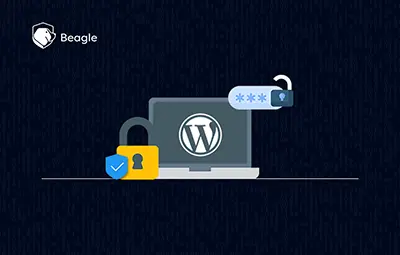
User enumeration is a process used by attackers to identify valid usernames associated with a system or platform, such as a website or network.
This information can then be used to launch targeted attacks, such as brute force attacks to gain unauthorized access. It poses a significant security risk as it provides attackers with valuable information for exploiting vulnerabilities in authentication systems.
In this blog we will discuss WordPress user enumeration, its impacts and prevention.
What is WordPress user enumeration?
WordPress user enumeration is an attack, where an attacker thoroughly scans a web application to discover the login name of the WordPress based web application. Essentially, it’s a technique where a malicious actor attempts to gather a list of valid usernames associated with the WordPress installation.
This can be achieved through various methods, including:
Directories listing: WordPress websites often have default directories like /wp-admin/ and /wp-content/, where usernames might be visible in URLs or HTML source code.
Author archives: WordPress automatically generates author archives for each user, displaying their posts and other information. By accessing these archives, attackers can collect usernames.
Login error messages: When attempting to log in, WordPress might provide different error messages for invalid usernames and incorrect passwords. By observing these messages, attackers can determine which usernames are valid.
Brute force attacks: Attackers may use brute force attacks, where they systematically try to log in with various usernames and passwords to identify valid credentials.
User enumeration poses a security risk because it provides attackers with valuable information that can be used in subsequent attacks, such as brute force attacks to gain unauthorized access to the WordPress admin dashboard.
Now let us see some impacts of WordPress user enumeration.
Impacts of WordPress user enumeration
The impacts of WordPress user enumeration can be significant, posing various risks to website security and potentially compromising sensitive information. Here are some of the potential impacts:
1 . Increased risk of brute force attacks
Attackers can use the enumerated list of usernames to launch brute force attacks, where they systematically try different passwords to gain unauthorized access to WordPress user accounts. This can lead to account takeover, unauthorized modifications to website content, or theft of sensitive data.
2. Exposure of user information
User enumeration can expose sensitive information about registered users, such as usernames and potential email addresses. This information can be used for malicious purposes, such as phishing attacks or identity theft.
3. Compromised website security
Successful enumeration of user accounts can undermine the overall security of a WordPress website, making it more vulnerable to various forms of exploitation and cyberattacks. This can result in website defacement, data breaches, or the installation of malicious software.
4. Damage to reputation
A compromised website can damage the reputation of the website owner or organization, leading to loss of trust among visitors, customers, or clients. This can have long-term consequences for business operations and credibility.
5. Legal and compliance issues
Depending on the nature of the compromised data, there may be legal and regulatory implications, such as violations of data protection laws or breach notification requirements. This can result in legal penalties, fines, or legal action against the website owner.
In short, WordPress user enumeration can have far-reaching consequences, highlighting the importance of implementing robust security measures to protect against such vulnerabilities and ensuring the confidentiality, integrity, and availability of website data.
Preventing WordPress user enumeration
Preventing WordPress user enumeration involves implementing various security measures to reduce the risk of attackers discovering valid usernames associated with the website. Here are some effective strategies:
1. Use security plugin
Install reputable security plugins specifically designed to prevent user enumeration. These plugins often include features such as hiding user enumeration URLs, blocking malicious IP addresses, and enhancing overall website security.
2. Disable author archives
By default, WordPress generates author archives that display posts authored by each user. Disabling these archives can prevent attackers from easily obtaining a list of valid usernames.
This can be done by modifying the website’s theme files or using plugins to disable author archives.
3. Customize login error messages
Modify WordPress login error messages to provide generic responses, regardless of whether the username or password is incorrect. This prevents attackers from distinguishing between valid and invalid usernames based on the error messages displayed.
4. Implement Two-Factor Authentication (2FA)
Require users to authenticate using two-factor authentication, which adds an extra layer of security beyond passwords. This can help mitigate the risk of brute force attacks even if valid usernames are discovered.
5. Limit login attempts
Implement restrictions on the number of login attempts allowed within a certain timeframe. This helps thwart brute force attacks by locking out IP addresses or user accounts that exceed the specified login attempt threshold.
6. Regularly update WordPress core, themes, and Plugins
Keep WordPress core, themes, and plugins up to date to patch any known vulnerabilities that could be exploited for user enumeration or other security threats. Enable automatic updates where possible to ensure timely patching of security vulnerabilities.
7. Implement strong password policies
Enforce strong password policies for user accounts, including requiring a minimum password length, complexity requirements, and regular password changes. This reduces the likelihood of successful brute force attacks even if usernames are discovered.
8. Monitor website activity
Regularly monitor website logs and activity for signs of suspicious behavior, such as multiple fallowing attempts or unusual access patterns. This allows for timely detection and response to potential security incidents.
By implementing these preventive measures, website owners can significantly reduce the risk of WordPress user enumeration and enhance the overall security posture of their WordPress websites.





